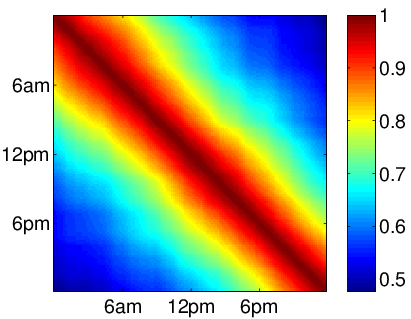Decision Making with Statistics from Sampled Data
How do we use data for decision making when only statistics from sampled data are available?
Distributionally robust optimization is a framework that unifies robust optimization and stochastic programming. Compared to stochastic programming, the framework is based on stochastic modeling, but it only uses statistics from sampled data that are easier to obtain than a full stochastic model. The key assumption is that the underlying probability distribution belongs to a set of distributions (defined by the statistics), similar to conventional robust optimization. Naturally, distributionally robust optimization requires solving an infinite-dimentional optimization problem and is not amenable to numerical solutions. I have developed tractable numerical solutions for a very general class of distributionally robust optimization problems. The method has been applied to the problem of energy storage assignment in a power network in the presence of uncertain wind power generation.

- Shuo Han, Ufuk Topcu, Molei Tao, Houman Owhadi, and Richard M. Murray, “Convex optimal uncertainty quantification: Algorithms and a case study in energy storage placement for power grids,” in American Control Conference, 2013. Best Student Paper Finalist [pdf]